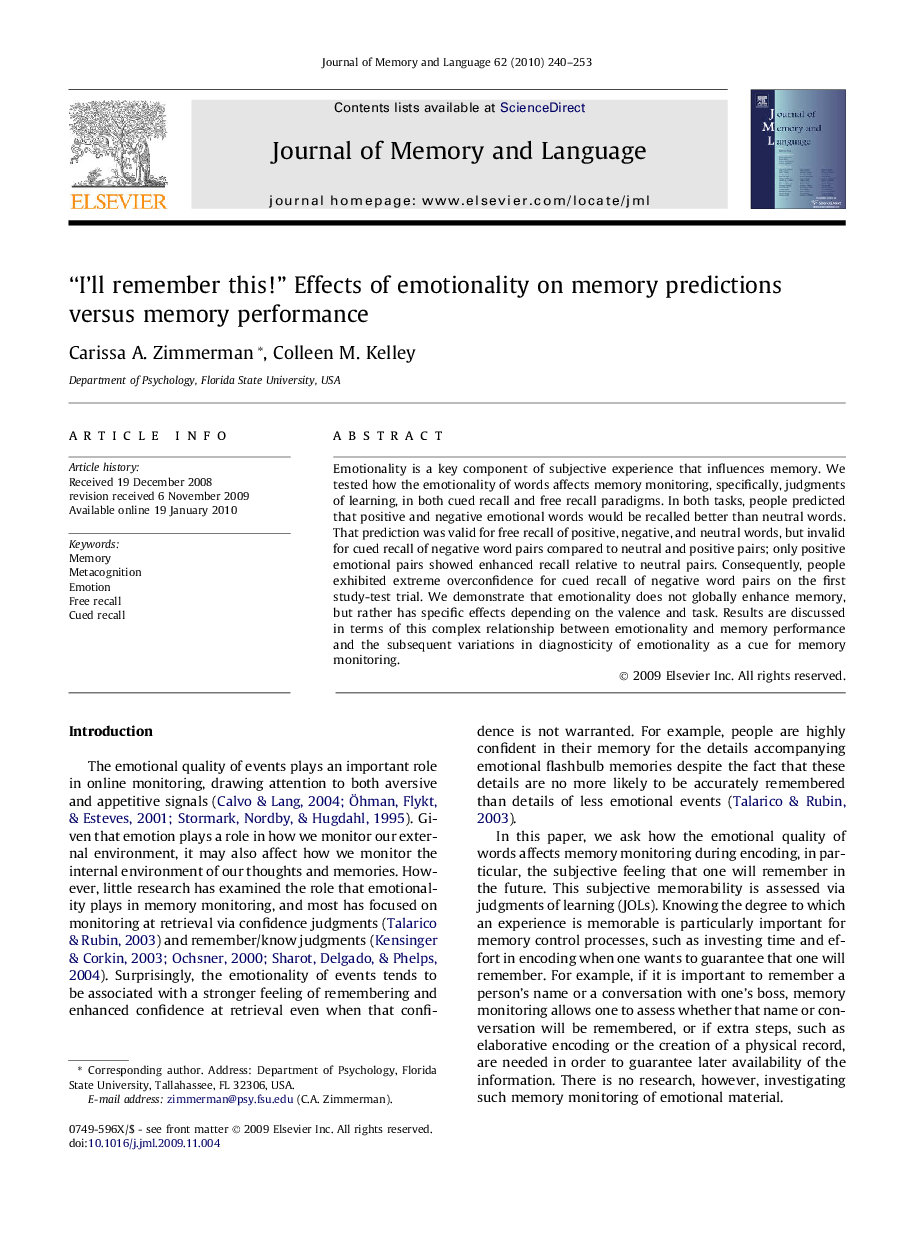| Article ID | Journal | Published Year | Pages | File Type |
|---|---|---|---|---|
| 932135 | Journal of Memory and Language | 2010 | 14 Pages |
Emotionality is a key component of subjective experience that influences memory. We tested how the emotionality of words affects memory monitoring, specifically, judgments of learning, in both cued recall and free recall paradigms. In both tasks, people predicted that positive and negative emotional words would be recalled better than neutral words. That prediction was valid for free recall of positive, negative, and neutral words, but invalid for cued recall of negative word pairs compared to neutral and positive pairs; only positive emotional pairs showed enhanced recall relative to neutral pairs. Consequently, people exhibited extreme overconfidence for cued recall of negative word pairs on the first study-test trial. We demonstrate that emotionality does not globally enhance memory, but rather has specific effects depending on the valence and task. Results are discussed in terms of this complex relationship between emotionality and memory performance and the subsequent variations in diagnosticity of emotionality as a cue for memory monitoring.
